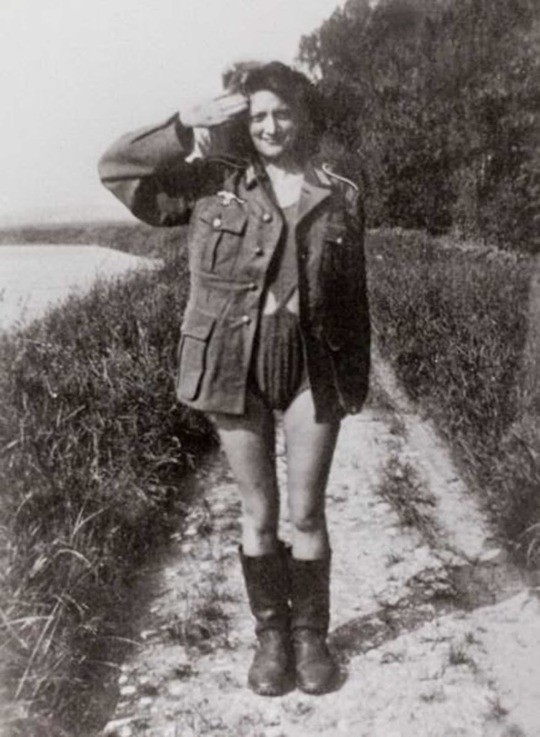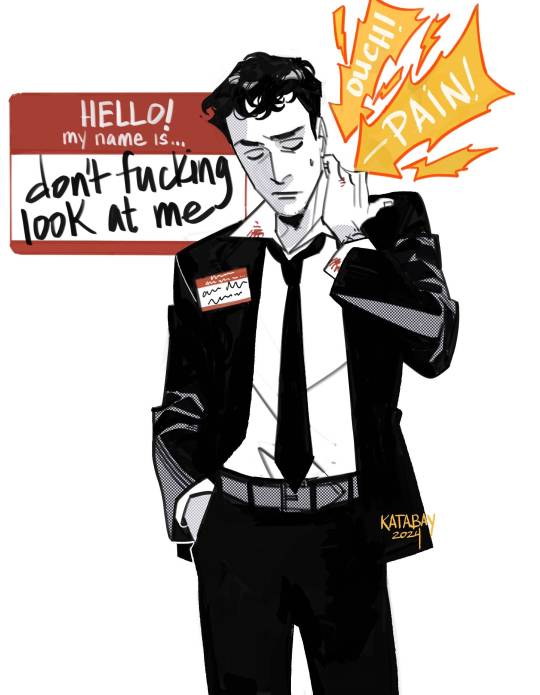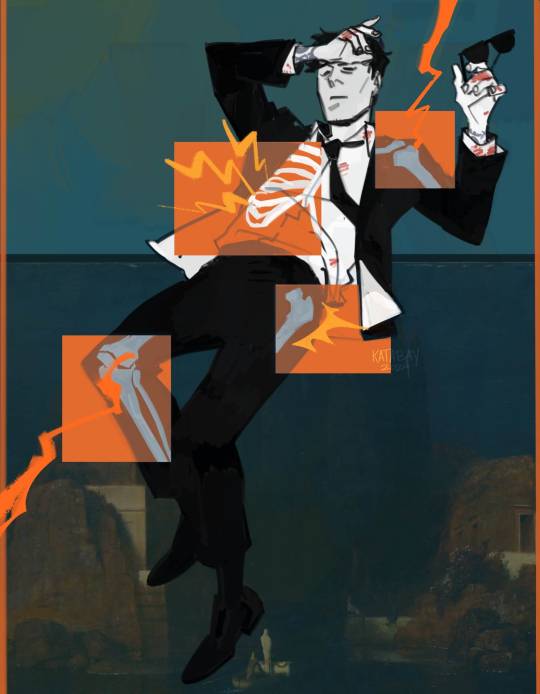#the Second World War
Explore tagged Tumblr posts
Text

SAS Rogue Heroes (season 2)
Who dares wins. The adrenaline-fuelled origins of the fearless, reckless Special Forces unit, its legend forged among the mayhem of WWII.
A brilliant sequel to season 1. I really like the way it's filmed, and the modern music works surprisingly well with the 1940s setting. These were incredibly brave men—truly fearless. I enjoyed it as much as I enjoyed Band of Brothers. Paddy Mayne, played by Jack O'Connell, is such an interesting, remarkable, yet tortured character.
I really hope the BBC will renew it for season 3 because I would love to watch more of it.
If you enjoy shows about history and the Second World War, then you will love this. Highly recommend it.
P.S. I think Jack O'Connell could make an excellent James Bond!
#sas rogue heroes#SAS#Special forces#Second world war#the second world war#connor swindells#david stirling#paddy mayne#jack o'connell#sofia boutella#jacob mccarthy#gwilym lee#dominic west#the Second World War#ww2#D Day#James Bond#Peaky Blinders
21 notes
·
View notes
Text

Warehouse on fire during the Second World War in Hamburg, Germany
German vintage postcard
#postal#german#the second world war#historic#ansichtskarte#fire#sepia#vintage#tarjeta#germany#second#briefkaart#photo#world#postkaart#warehouse#ephemera#postcard#postkarte#photography#hamburg#carte postale
18 notes
·
View notes
Text
#video#beautiful#1940s#1941#1945#war#actors#performance#play#Germans#russians#coldwarr098#The Second World War#World War II#ww2#atmosphere#vibes#aesthetic
5 notes
·
View notes
Text

Edward Sackville-West (1901-1965) The Rescue.
A Melodrama for Broadcasting based on Homer's Odyssey, 1945 with six illustrations by Henry Moore
The Rescue by Edward Sackville-West was first performed on BBC radio in November 1943. Over three million people tuned in to listen. An orchestral score by Benjamin Britten accompanied the play.
Based on the last books of Homer's epic poem the Odyssey, The Rescue recounts Odysseus's return to his homeland, the Mediterranean island of Ithaca. With soldiers away fighting on the front, the theme of homecoming in The Rescue resonated strongly with its audience of mostly women and civilians.
When the text was published, Henry Moore provided drawings to illustrate some of the scenes. One of these, The Shadow on the Wall, shows the profile of a man against a brick wall. It is the profile of the protagonist Odysseus, incised by his wife Penelope onto a wall so that the grey stone showed through the whitening where she had scratched it.
In this image, the masonry wall dominates the lightly drawn profile.

The Courtauld Gallery, London
#english imagination#art#english culture#albion#english art#england#henry moore#Edward Sackville West#book illustration#illustration#world war ii#the Second World War#the odyssey#book art#art in books
1 note
·
View note
Text
I know I'm a week late but I do think people are misunderstanding the point of the Anthony Bourdain quote about Kissinger
The point was never "Anthony Bourdain has good politics and is an unproblematic fave," the point is that even someone with mainstream liberalish politics who goes to Cambodia for a food tour - a, let's be honest, very bougie type of trip to be part of your job - and has a basic understanding of history and a bare minimum of human decency can come away from that bougie food tour wanting to murder Henry Kissinger with their bare hands. The point is that Henry Kissinger fucked up this country so bad the only reason he wasn't lynched decades ago is because it's on the opposite side of the world and the people who were in proximity to him never really saw what it was. The point is that if we could see firsthand what our First World politics do to the Third World we would understand that monsters walk among us and it's a cultural failing that we let them die at home at 100 years old surrounded by their friends and family.
#henry kissinger#the unifying theory of fuck that guy#i use first and third world intentionally here because that is the exact political structure in play#first world didn't mean rich or privileged or important#it meant the us and its allies#the second world was the ussr#and the third world was the countries we were fighting over in the quote-unquote cold war
7K notes
·
View notes
Text
Things World War II was about:
-the post-ww1 reorganization of Europe
-Japan and the USA's long-term cold war over who gets to claim the South Pacific as their sphere of influence
Things World War II was not about:
-saving the Jews
-fighting the Communists
-defeating white supremacy
859 notes
·
View notes
Text

Allied soldiers mocking Hitler (Balcony of the Reich Chancellery, 1945)
#dictatorship#naziism#history#sealed in time#black and white#black & white#b&w#photography#historical photos#history photos#black and white photography#rare photos#old photos#vintage photos#worldhistory#1945#1940s#circa 1945#ww2 photo#ww2 germany#world war 2#world war two#concentration camp#crimes against humanity#hate crimes#worldwar2photos#second world war#wwii#ww2 history
355 notes
·
View notes
Text

Tiger 1 SS Division
#ww2#wwii#second world war#world war 2#1940s#world war two#photography#war history#tumblr#world war ii#world#war#2#Panzer#tiger#tank#tanks#ww2 germany#ww2 era#ww2 history#wwii era#tumbler#wwii germany#german army#photoshoot#photo#picture#gif#germany#history
294 notes
·
View notes
Text


French girls wearing their German boyfriends uniforms during World War 2. The photo on the right was found on a German POW.
#historical photos#history#historical#ww2#world war 2#world war ii#second world war#ww2 photos#wwii#wwii photos#ww2 history#wwii history#1940s#1940s women#1940s photos#ww2 women
875 notes
·
View notes
Text


THE JETSET LIFE IS GONNA KILL YOU, ERIC CARTER!
my laptop charger uhhhhhh. met its end in a very permanent, very fire hazardy kind of way last week. while waiting for a replacement I decided to try and get some work done at the library and was asking around for some urban fantasy (extra points for a mystery plot of some kind) recommendations to check out while I was there
the eric carter series was mentioned a couple of times, AND had the added bonus of having a necromancer for a main character. I love necromancers. someday I'm gonna play one in a game instead of immediately defaulting to vampires.


Fire Season, Stephen Blackmoore
#i was also told to check out johannes cabal because. again. necromancers. and sandman slim#i'll get around to it next year probably#ive had urban fantasy on the mind ever since I did a full re read of the dresden files and then a SECOND re read of it right after#but from a different starting point and then did an unnecessary examination of harry as an unreliable narrator#with a very specific kind of world vision that does funny things to his perception. idk what purpose that served#ANYWAY. i got a whole list of gritty urban fantasy recommendations to slowly work through next year#i dont really play around with original english language urban fantasy fiction very often because it's like#a lot of what i want out of it I already get out of japanese/korean comics I read and also filipino horror#so I'm not exactly starved for it except that I'm low key kind of starving for it. when will filipino horror return from the war#anyway i appreciate the hate the main character has for spanish colonialism#and as a long time whump enthusiast i love it when a character goes through the absolute wringer#creative liberties were taken. i thought about rolling up the sleeve on his. left? arm and then thought about the tattoos and changed#my mind lmao. i started drawing some of them tho. i once dated a guy who was similarly tattooed and for a minute i thought#'well i can just rip off all of that' and then i thought 'wait i still have to draw it' and decided Not To#eric carter series
174 notes
·
View notes
Text
Blood Purity and a Declining Birth Rate
Voldemort’s promise to restore pureblood supremacy isn’t just a call to arms; it’s a lifeline for a community terrified of its own obsolescence.
The wizarding world is haunted by more than just literal ghosts; it is a world that seems to be shrinking, its former grandeur fading into memory. Signs of decline are everywhere: Hogwarts, once a bustling center of magical education, has unused classrooms and seemingly fewer students than one would expect for the only magical school in Great Britain and Ireland. Diagon Alley, supposedly the heart of the magical community in one of the world’s largest cities, consists of just a few streets. Even wizarding media is centralized in a single newspaper.
These clues suggest a world that was once much larger than it is now. There are references to better days and implications that Hogwarts isn’t what it used to be now that Dumbledore is in charge. This decline is tied closely to the waning influence of pureblood families, who are becoming a smaller and smaller fraction of the wizarding population. Muggle-born and half-blood students outnumber them at Hogwarts, a shift that threatens the social and political dominance Purebloods have held for centuries.
What’s particularly interesting is how purebloods respond—or fail to respond—to their declining numbers. Unlike other extremist groups like Christian fundamentalists or white nationalists, who often promote large families as a "sacred duty" to maintain their cultural dominance (Hitler gave medals to women who had five or more children), pureblood families in Harry Potter are remarkably small. This lack of larger pureblood families raises questions about their long-term strategies for survival. If blood purity is their highest priority, why don’t purebloods prioritize reproduction as a means to preserve their numbers?
Draco Malfoy, the prime school-age pureblood antagonist of the main character, is an only child. Sirius Black and Regulus Black come from an ancient family with an extensive family tree, yet they have no siblings beyond each other and only three cousins. Bellatrix Lestrange, one of the most fanatical proponents of blood purity, didn’t have children until her late 40s—and even then, it is a single child (and only if you accept Cursed Child as canon).
Harry Potter himself comes from a pureblood family, but his only living relatives are his Muggle aunt and cousin. Neville Longbottom is raised by his grandmother, and while he mentions elderly relatives, there’s no indication of cousins his own age. Even the Weasleys, the exception to the rule with their seven children, seem to lack extended family—there are no Weasley cousins attending Hogwarts during Harry’s time.
The First Wizarding War can partially explain the small size of Harry’s generation: people were afraid to have children during Voldemort’s rise to power, and the violence of that decade wiped out much of a generation. However, this alone doesn’t account for the decline. Something must have happened in the previous generation as well. For several generations now, pureblood families haven’t been having enough children to maintain their population.
Another explanation could be that their intense focus on lineage and prestige means they are selective about marriage and procreation, limiting family size to maintain "purity" rather than expanding it. Marrying within a shrinking pool of acceptable partners likely leads to fewer unions and, consequently, fewer children. Additionally, inter-family rivalries, societal pressures, and a rigid class system may discourage collaboration between pureblood families to ensure survival.
While we see pureblood families of different economic status in the series it is also worth noting that smaller families may be a deliberate choice to consolidate wealth and maintain power within a single branch of the family, ensuring that resources aren’t dispersed among too many inheritors. By keeping family sizes small, they can preserve their status and influence in a society where lineage and financial stability are critical markers of power.
Alternatively, external factors not mentioned in canon could help explain the dwindling pureblood numbers. Perhaps a catastrophic outbreak of dragon pox ravaged Britain at the turn of the century, disproportionately affecting pureblood families due to their insular communities and close intermarriages. An economic crisis could also have made it difficult for even wealthy families to support large households, especially given the high costs of maintaining pureblood status and reputation. Such events would compound the social and cultural pressures already discouraging large families, contributing to a steady decline in pureblood populations.
The decline in a pureblood population creates a simmering panic among purebloods. They perceive that their traditions and way of life are changing, and instead of adapting to demographic shifts and embracing a more inclusive future, they cling to fear and resentment. They blame Muggle-borns for their loss of power, projecting their anxieties onto those they perceive as outsiders for “stealing” magic.
When those in positions of power feel their dominance slipping, they often construct narratives in which the oppressed will rise up and do to them what they, the ruling class, have done to others. This paranoia leads purebloods to double down on their exclusivity, believing that maintaining their power is the only way to avoid losing everything. Their refusal to adapt blinds them to the potential benefits of inclusivity: a larger magical community, a stronger economy with more people working wizarding jobs and purchasing wizarding goods, and a broader cultural foundation to sustain their traditions.
This fear and resistance to change create fertile ground for Voldemort’s rise. He exploits the purebloods’ anxieties, offering them a roadmap for radicalization. Instead of addressing the root causes of their decline, purebloods embrace the Dark Lord’s extreme methods, leading to catastrophic consequences.
The determination to "purify" the wizarding world and maintain their position of power ironically accelerates their downfall. As Death Eaters enact Voldemort’s vision, their crusade doesn’t simply target individual Muggle-borns but entire families—wiping out, or nearly wiping out, powerful, established wizarding lineages like the Bones, McKinnons, Longbottoms, and Potters. This destructive cycle ensures that even the pureblood families themselves suffer massive losses, further accelerating the population decline they sought to prevent.
Purebloods who embrace the politics of purity in an attempt to stave off extinction ultimately hasten their own downfall, prioritizing exclusivity and radicalization over growth and adaptation.
(thanks to @livelaughlovetoread for reading this over and beta reading!)
#harry potter#harry potter meta#harry potter analysis#voldemort#wizarding world#first wizarding war#second wizarding war
160 notes
·
View notes
Text

We Were the Lucky Ones (2024)
A Jewish family separated at the start of World War II is determined to survive and reunite.
A brilliant, thought-provoking, and extremely moving true story of a Jewish family during WWII. A quality production that is very impactful.
#We were the lucky ones#WW2#True story#The second world war#Holocaust#Jewish history#Hulu#Babylon Berlin#Band of Brothers#Anne Frank's Diary#Shows to watch#Joey King#logan lerman#robin weigert#hadas yaron#Amit Rahav#Lior Ashkenazi#henry lloyd hughes#sam woolf
10 notes
·
View notes
Text

Church of Oradour-sur-Glane after the Second World War, Limousin region of central France
French vintage postcard
#postcard#ansichtskarte#briefkaart#france#glane#photography#carte postale#vintage#the second world war#postkarte#photo#historic#postkaart#central#ephemera#world#second#sepia#limousin#oradour#church#region#french#tarjeta#postal
8 notes
·
View notes
Photo

Lee Miller. Elizabeth Cowell wearing a Digby Morton suit. London. 1941.
I Am Collective Memories • Follow me, — says Visual Ratatosk
#BW#Black and White#Preto e Branco#Noir et Blanc#黒と白#Schwarzweiß#retro#vintage#Lee Miller#Elizabeth Cowell#Digby Morton#fashion#vintage fashion#London#England#1941.#1940s#40s#Blitz#war#guerra#Second World War#WW 2#history#histoire#história#Geschichte#歴史#historical#historisch
356 notes
·
View notes
Text


They call you King but all I see is Pawn...
#world of warcraft#anduin wrynn#the war within#xal'atath#I keep reading it as prawn#anyway i had an idea but i wasnt sure how to draw it and i made two sketches#idk im just thinking of all the things Xal could say if she targeted Anduin instead#pLEASE PLEASE BLIZZ WRITE THEM INTERACTING AT LEAST ONCE#IM BEGGING YOU#second one i just put Bocca della Verita on repeat
204 notes
·
View notes
Text

time to plan out the border...
#thinking baby scene. grape vines. a church. lemons and oranges. what else#i love you ignaziu i love putting my catholic religious trauma on you#maybe i'll put herbs#theyre part of my D&D world but basically a narrative around being raised from birth as a hero of the Mourning Church#and in a holy ritual at the age of 22 given the blood of the Twin God to serve as their demigod champion#before thousands of years and thousands of battles later they snap#they were born on the second day of the second month at the apex of a solar eclipse#which was seen as an omen that they were destined for greatness#a major propaganda campaign by the church to cultivate a living sword to decimate its enemies and wage war
200 notes
·
View notes